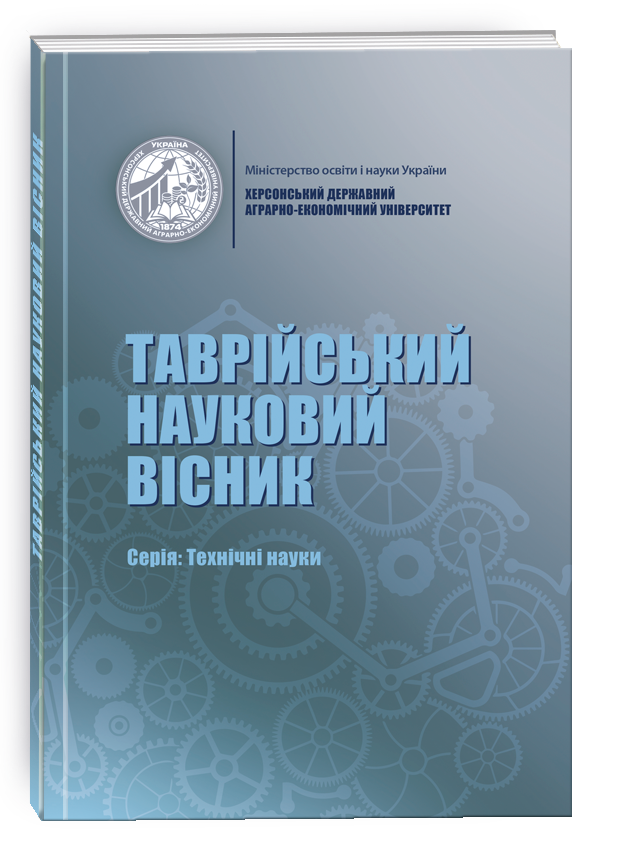ADVANTAGES AND RISKS OF USING OPEN-SOURCE LIBRARIES IN COMMERCIAL DEVELOPMENT
DOI:
https://doi.org/10.32782/tnv-tech.2024.3.8Keywords:
Open-source software, Libraries, Commercial Development, Software ManagementAbstract
In the evolving landscape of digital libraries, the integration of Open-Source Software (OSS) presents a compelling avenue for enhancing service efficiency while curbing operational costs. This paper delves into the alignment of open-source principles with the foundational goals of libraries, underscoring the pivotal role of OSS in democratizing access to information and safeguarding intellectual property. Amidst the plethora of software options available for library management, the paper emphasizes the necessity of discerning the suitability of OSS for digital library applications, a decision critical to the continued growth and success of the open-source paradigm. The research extends beyond previous studies by offering a nuanced exploration of the functional and commercial benefits and drawbacks of OSS as perceived by management within the ESSS sector. It highlights the technical merits of OSS, such as enhanced reliability, security, and performance, attributed to the ability to scrutinize and modify the source code–advantages that notably surpass those offered by proprietary counterparts. The study also identifies parallel gains in the business domain, including the avoidance of vendor lock-in and the fostering of collaboration and innovation, which resonate with the technical benefits. The investigation reveals that certain technical challenges previously associated with OSS, such as compatibility issues and user-friendliness, do not pose significant obstacles for practitioners. Conversely, the study uncovers that the business disadvantages linked to OSS, although mirroring the technical concerns, present more substantial hurdles. In conclusion, the paper contributes a comprehensive assessment of the advantages and risks associated with the adoption of OSS in commercial development, offering valuable insights for practitioners and decision-makers in the realm of digital library services. It underscores the importance of balancing the technical and commercial considerations to harness the full potential of OSS, thereby shaping a future where open-source solutions are integral to the infrastructure of information access and preservation.
References
Setia P., Bayus B. L., Rajagopalan B. The takeoff of open-source software: a signaling perspective based on community activities. MIS Quarterly. 2020. Vol. 44.
Albeladi S. S. The role of open-source software to create digital libraries and standards assessment. International Journal of Computer Science & Network Security. 2021. Vol. 21. P. 241-248.
Fortunato L., Galassi M. The case for free and open-source software in research and scholarship. Philosophical Transactions of the Royal Society A. 2021. Vol. 379. Article number 20200079.
Boeing G., Higgs C., Liu S., Giles-Corti B., Sallis J. F., Cerin E., et al. Using open data and open-source software to develop spatial indicators of urban design and transport features for achieving healthy and sustainable cities. The Lancet Global Health. 2022. Vol. 10. P. e907-e918.
Lenarduzzi V., Taibi D., Tosi D., Lavazza L., Morasca S. Open-source software evaluation, selection, and adoption: a systematic literature review. In 2020 46th Euromicro Conference on Software Engineering and Advanced Applications (SEAA). IEEE, 2020. P. 437-444.
Kholod I., Yanaki E., Fomichev D., Shalugin E., Novikova E., Filippov E., et al. Open-source federated learning frameworks for IoT: A comparative review and analysis. Sensors. 2020. Vol. 21. P. 167.
Bonati L., Polese M., D’Oro S., Basagni S., & Melodia T. Open, programmable, and virtualized 5G networks: State-of-the-art and the road ahead. Computer Networks. 2020. Vol. 182. Article number 107516.
Harris I. Package development. In Beginning Salesforce DX: Versatile and Resilient Salesforce Application Development. Springer, 2022. P. 457-529.
Green C., Amundson J., Garren L., Gartung P., Sexton-Kennedy E. SpackDev: Multi-package development with spack. EPJ Web of Conferences. 2020. Vol. 245. Article number 05035.
Cardoso M. J., Li W., Brown R., Ma N., Kerfoot E., Wang Y. et al. Monai: An open-source framework for deep learning in healthcare. arXiv. 2022. Vol. 2211. Article number 02701.
Winata A. P., Fadelina R., Basuki S. New normal and libraries services in Indonesia: A case study of university libraries. Digital Libraries Perspectives. 2021. Vol. 37. P. 77-84.
Fox E.A., da Silva Torres R. Digital libraries technologies. Springer Nature, 2022.
Cowell J. Managing a libraries service through a crisis. Libraries Management. 2021. Vol. 42. P. 250-255.
Kiron D., Spindel B. Rebooting work for a digital era: how IBM reimagined talent and performance management. MIT Press, 2020.
Boemer F., Kim S., Seifu G., de Souza F.D.M., Gopal V. Intel HEXL: accelerating homomorphic encryption with Intel AVX512-IFMA52. arXiv. 2021. Vol. 2103. Article number 16400.
Kato A., Kisangiri M., Kaijage S. A review development of digital libraries resources at university level," Education Research International. 2021. Vol. 2021. P. 8883483.
Chan T.T.W., Lam A. H. C., & Chiu D. K. From Facebook to Instagram: Exploring user engagement in academic libraries. The Journal of Academic Librarianship. 2020. Vol. 46. Article number 102229.
Lenarduzzi V., Tosi D., Lavazza L., Morasca S. Why do developers adopt opensource software? Past, present and future. In IFIP International Conference on Opensource Systems. Montreal: HAL Science, 2019. P. 104-115.
Fendt O., Jaeger, M.C. Open-source for open-source license compliance. In Open-source Systems: 15th IFIP WG 2.13 International Conference, OSS 2019. Montreal: HAL Science, 2019. P. 133-138.
Geyer-Blaumeiser L. Ensuring open-source compliance using Eclipse Foundation technology. EclipseCon Europe, 2022.
Azhakesan A., Paulisch F. Sharing at scale: an open-source-software-based license compliance ecosystem. In Proceedings of the ACM/IEEE 42nd International Conference on Software Engineering: Software Engineering in Practice. ICSE-SEIP, 2020. P. 130-131
Yılmaz N., Kolukısa Tarhan A. Quality evaluation models or frameworks for open-source software: A systematic literature review. Journal of Software: Evolution and Process. 2022. Vol. 34. Article number e2458.
Spinellis D. How to select open-source components. Computer. 2019. Vol. 52. P. 103-106.
Urbančok B. D. Blockchain open-source software comparison. Masaryk University Faculty of Informatics (MUNI), 2019. URL: https://is.muni.cz/th/qr98z/thesis.pdf.
Billimoria K. N. Linux Kernel Programming: A comprehensive guide to kernel internals, writing kernel modules, and kernel synchronization. Packt Publishing Ltd, 2019.
Harutyunyan N., Bauer A., Riehle D. Industry requirements for FLOSS governance tools to facilitate the use of open-source software in commercial products. Journal of Systems and Software. 2019. Vol. 158. Article number 110390.
Karampatsis R.-M., Babii H., Robbes R., Sutton C., Janes A. Big code!= big vocabulary: Open-vocabulary models for source code. In Proceedings of the ACM/IEEE 42nd International Conference on Software Engineering. IEEE, 2020. P. 1073-1085.
Bonfield J.K., Marshall J., Danecek P., Li H., Ohan V., Whitwham A. et al. HTSlib: C libraries for reading/writing high-throughput sequencing data. Gigascience. 2021. Vol. 10. Article number giab007.
Campos C., Elvira R., Rodríguez J. J. G., Montiel J. M., Tardós J. D. Orb-slam3: An accurate open-source libraries for visual, visual–inertial, and multimap slam. IEEE Transactions on Robotics. 2021. Vol. 37. P. 1874-1890.
Wang Y., Chen B., Huang K., Shi B., Xu C., Peng X., et al. An empirical study of usages, updates and risks of third-party libraries in java projects, In 2020 IEEE International Conference on Software Maintenance and Evolution (ICSME). IEEE, 2020. P. 35-45.
Diesch R., Pfaff M., Krcmar H. A comprehensive model of information security factors for decision-makers. Computers & Security. 2020. Vol. 92. Article number 101747.
Bjork B.-C., Korkeamaki T. Adoption of the open access business model in scientific journal publishing: A cross-disciplinary study. arXiv. 2020. Vol. 2005. Article number 01008.
Tang J., Li B.-Y., Li K.W., Liu Z., & Huang J. Pricing and warranty decisions in a two-period closed-loop supply chain. International Journal of Production Research. 2020. Vol. 58. P. 1688-1704.
Grimaldi M., Greco M., Cricelli L. A framework of intellectual property protection strategies and open innovation. Journal of Business Research. 2021. Vol. 123. P. 156-164.
Enkel E., Bogers M., Chesbrough H. Exploring open innovation in the digital age: A maturity model and future research directions. R&d Management. 2020. Vol. 50.
Bouncken R.B., Kraus S., Roig-Tierno N. Knowledge-and innovationbased business models for future growth: Digitalized business models and portfolio considerations. Review of Managerial Science. 2021. Vol. 15. P. 1-14.
Trischler M.F.G., Li-Ying J. Digital business model innovation: toward construct clarity and future research directions. Review of Managerial Science. 2023. Vol. 17. P. 3-32.
Нестеров В., Костенко В., Курасова Н. Технологічні інновації у перекладі: вплив комп’ютерних програм та штучного інтелекту. Вісник науки та освіти. Том 20. № 2. С. 261-273.







